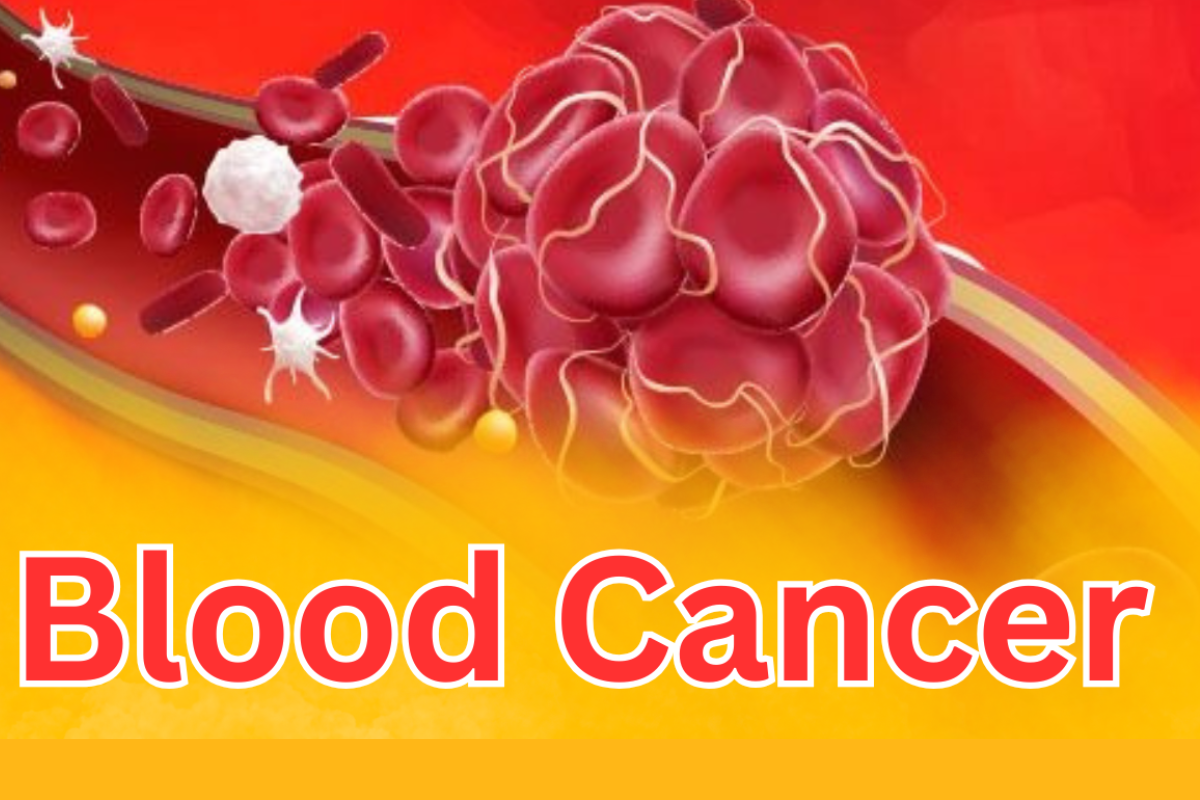Early Signs of Blood Cancer
Understanding the early signs of blood cancer is very important for timely medical intervention.
Blood cancer, also known as leukemia or lymphoma, can manifest through various symptoms that are often mistaken for other less severe conditions.

Recognizing these blood cancer warning signs can help individuals take proactive steps towards their health. By being aware of the symptoms, readers can seek medical help when necessary.
Key Takeaways
- Understanding the importance of early detection
- Recognizing common blood cancer symptoms
- Knowing when to seek medical help
- Taking proactive steps towards health
Understanding Blood Cancer: Types and Risk Factors
Understanding the different types of blood cancer and their associated risk factors is crucial for early detection and treatment.
Common Types of Blood Cancer
It can categorized into three main types:
- Leukemia: The cancer of the blood and bone marrow characterized by the abnormal production of white blood cells.
- Lymphoma: The cancer of the lymphatic system, which includes lymph nodes, spleen and lymphoid tissues.
- Myeloma: The cancer of plasma cells, a type of white blood cell which present in the bone marrow.
Who Is at Risk for Blood Cancer?
These include:
- Genetic predisposition: Family history of blood cancer or other cancers.
- Exposure to certain chemicals: Such as benzene and pesticides.
- Previous radiation therapy: Exposure to high levels of radiation.
- Certain infections: Like the Epstein-Barr virus, which is associated with lymphoma.
How Blood Cancer Develops
Blood cancer develops when there are changes in the DNA of blood cells, leading to uncontrolled cell growth.
This process can occur in various blood cells, depending on the type of blood cancer.
For instance, leukemia begins in the bone marrow, where white blood cells are produced.
Understanding these aspects of blood cancer is vital for identifying potential symptoms and seeking timely medical intervention.
ऐसे होते है Blood Cancer के शुरुआती लक्षण ! (Early Symptoms of Blood Cancer)
Understanding the early symptoms of blood cancer is vital for improving treatment outcomes.
Blood cancer, including leukemia and lymphoma, can manifest through various early signs that are often mistaken for other less severe conditions.
Fatigue and Weakness
One of the most common early symptoms of blood cancer is persistent fatigue and weakness.
This is not the usual tiredness one feels after a long day but a profound lack of energy that interferes with daily activities.
It occurs because the cancer cells compete with healthy cells for resources, leading to a shortage of red blood cells that carry oxygen throughout the body.
Unexplained Weight Loss and Fever
Unexplained weight loss is early indicators of blood cancer.
Fever, often accompanied by night sweats, can occur as the body responds to the disease.
These symptoms are nonspecific but persistent, warranting a visit to a healthcare professional.

Bruising and Bleeding Issues
Blood cancer can lead to bruising and bleeding issues due to a low platelet count.
Platelets are crucial for blood clotting, and their deficiency can result in easy bruising, nosebleeds, or bleeding gums.
These symptoms signal that the body’s ability to form clots is compromised.
Swollen Lymph Nodes and Bone Pain
Swollen lymph nodes, particularly in the neck, armpits or groin, can be a sign of lymphoma, which is a type of blood cancer.
Additionally, some patients experience bone pain or discomfort, which can occur if cancer cells accumulate in the bone marrow, causing it to expand.
Being aware of these early symptoms can prompt individuals to seek medical attention, potentially improving outcomes.
Conclusion: When to Seek Medical Help
Being aware of the early signs and symptoms of blood cancer is crucial for timely diagnosis and treatment.
Early detection can significantly impact treatment outcomes, making it vital to be proactive about your health.
When deciding when to seek medical help for blood cancer, consider the severity and duration of your symptoms.
A proper blood cancer diagnosis involves a series of tests, including blood tests and bone marrow biopsies.
If you’re concerned about your symptoms or have a family history of blood cancer, don’t hesitate to seek medical attention.
By being informed and taking proactive measures, you can ensure the best possible outcome.
FAQ
What are the early signs of blood cancer?
Early signs of blood cancer which can include fatigue, weakness, unexplained weight loss, fever, bruising and swollen lymph nodes.
These symptoms can be similar to those of other illnesses, making it essential to consult a healthcare professional for a proper diagnosis.
What are the common types of blood cancer?
The most common types of blood cancer will be leukemia, lymphoma and myeloma.
Leukemia affects the blood and bone marrow, lymphoma impacts the lymphatic system, and myeloma affects plasma cells.
Who is at risk for developing blood cancer?
Risk factors for blood cancer include genetic predisposition, exposure to certain chemicals, and previous radiation therapy.
Understanding these risk factors can help individuals identify potential symptoms and seek medical attention promptly.
How is blood cancer diagnosed?
Blood cancer is typically diagnosed through a combination of physical exams, medical history, and diagnostic tests such as blood tests, bone marrow biopsies, and imaging tests.
What is the importance of early detection in blood cancer?
Early detection of blood cancer can significantly impact treatment outcomes, making it essential to be aware of the early signs and symptoms and seek medical help promptly.
Can blood cancer be treated?
Yes, blood cancer can be treated with various therapies, including chemotherapy, radiation therapy, targeted therapy, and immunotherapy.
The choice of treatment depends on the type and stage of the cancer, as well as the individual’s overall health.
What are the symptoms of leukemia?
Symptoms of leukemia can include fatigue, weakness, infections, bruising, and bleeding.
Some people may also experience swollen lymph nodes, bone pain, or weight loss.
How does lymphoma affect the body?
Lymphoma can cause swollen lymph nodes, fever, weight loss, and fatigue. In some cases, it can also cause pain or discomfort in the abdomen or chest.

Dr. Shabbir Hussain Bohra (Physio)
Owner & Founder – Physio Talk
Director – HAKIMI Physiotherapy Clinic, Nagpur
Dr. Shabbir Hussain Bohra is a dedicated physiotherapist with seven years of comprehensive experience in rehabilitation and specialized therapeutic care. He holds a Bachelor of Physiotherapy (BPT) degree and has established himself as a leading expert in oncology physiotherapy and lymphedema management. Currently serving as a Consultant Physiotherapist at Asian Kidney Hospital, Nagpur, director hakimi Physiotherapy clinic nagpur Dr. Bohra brings extensive expertise in treating complex medical conditions requiring specialized rehabilitation approaches. His dual specialization as an Onco-Physiotherapist and Lymphedema Therapist enables him to provide targeted care for cancer patients and individuals managing lymphatic disorders.
